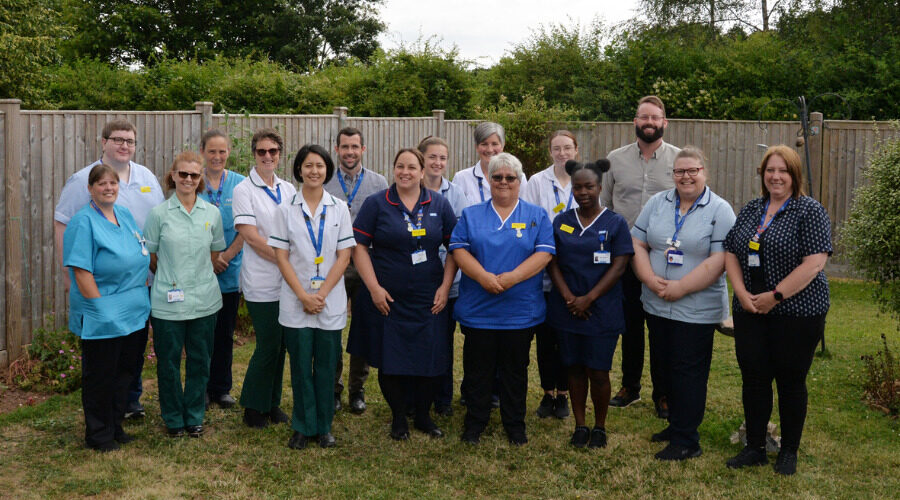
Spotlight
A spotlight on the Somerset Neurological Rehabilitation Centre
On the outskirts of Taunton, a team of NHS specialists are supporting patients from across Somerset, who are recovering from a range of neurological conditions.
The Somerset Neurological Rehabilitation Centre, more commonly known as SNRC, is a small but specialist unit with just 10 beds, based at Dene Barton Community Hospital in the village of Cotford St Luke.
Many experienced colleagues from all types of disciplines make up SNRC, from physiotherapists, occupational therapists, and speech and language therapists, to clinical neuropsychologists, specialist rehab nurses and neuro rehab specialist medical colleagues.
Dr Adam Bevins, our consultant clinical neuropsychologist based at SNRC, explains how the unit works. “We provide a service for patients with a whole range of different neurological disorders, such as traumatic brain injuries,” he said. “It may also be that the patient has had neurosurgery at one of the Bristol hospitals and has come to us for their rehab afterwards.
“Our patients may have had a brain tumour, as well issues with their peripheral nerves such as chronic inflammatory disease or Guillain-Barré syndrome – a very rare and serious condition that affects the nerves.
“Patients generally come to us once they’re medically fit and well enough to take part in rehab, following a stay at a district general hospital, such as Musgrove Park, Yeovil Hospital, the Royal United Hospital Bath, or one of the Bristol hospitals.
“We also support people in making the transition back home to everyday life in the community after hospital.
“The main aim of rehabilitation is to try to get them back as close to their previous level of function as realistically possible.”
Sian Clark, a physiotherapist on SNRC, explained how the unit operates slightly different to district general and community hospitals in that patients are likely to have a longer length of stay.
“Our length of stay reflects the fact that we are working holistically with patients with very complex rehabilitation needs,” she said.
“The aim of our interventions is to work in partnership with our patients and their families/carers towards identified rehabilitation goals, aimed at optimising a person’s function and independence as much as possible.
“Our aim is always to support a return home wherever possible, and this is more than often the case. If a return home is not feasible, then we aim to support the patient in an environment that best meets their needs.
“The most satisfying and rewarding part of our jobs is the time that we get to spend building positive working relationships with our patients, as well as seeing their progress.”
Adam said the whole ethos at SNRC was patient centred with people encouraged to be active participants in the rehabilitation process. “We support our patients to set personally meaningful goals”, he continued.
“I highly value working with really experienced clinicians who all bring something different to the table to help make this happen.
“It’s nice to walk this part of a patient’s journey with them, and it’s a real privilege to bear witness to their improvements and see them on their way.”
Both Adam and Sian commented that the facilities and surrounding of Dene Barton Hospital and the local community work really well for rehabilitation.
“Having the unit out at Dene Barton Hospital is so much better for our patients’ recovery too, as it’s in beautiful surroundings with secure courtyard gardens, and we have access to the on-site hydrotherapy pool too,” Adam continued.
“When the weather is nice, patients tend to socialise and sit out on the patio for their meals, as well as taking up gardening tasks.
“Because we’re in the community of Cotford St Luke, we have access to additional facilities that we can use as part of a patient’s rehab programme – for example we might walk with them to the local shop and see if they can manage their finances.
“We also have level access throughout Dene Barton Hospital for those unable to walk so overall it’s just a fantastic place to care for our patients.”
